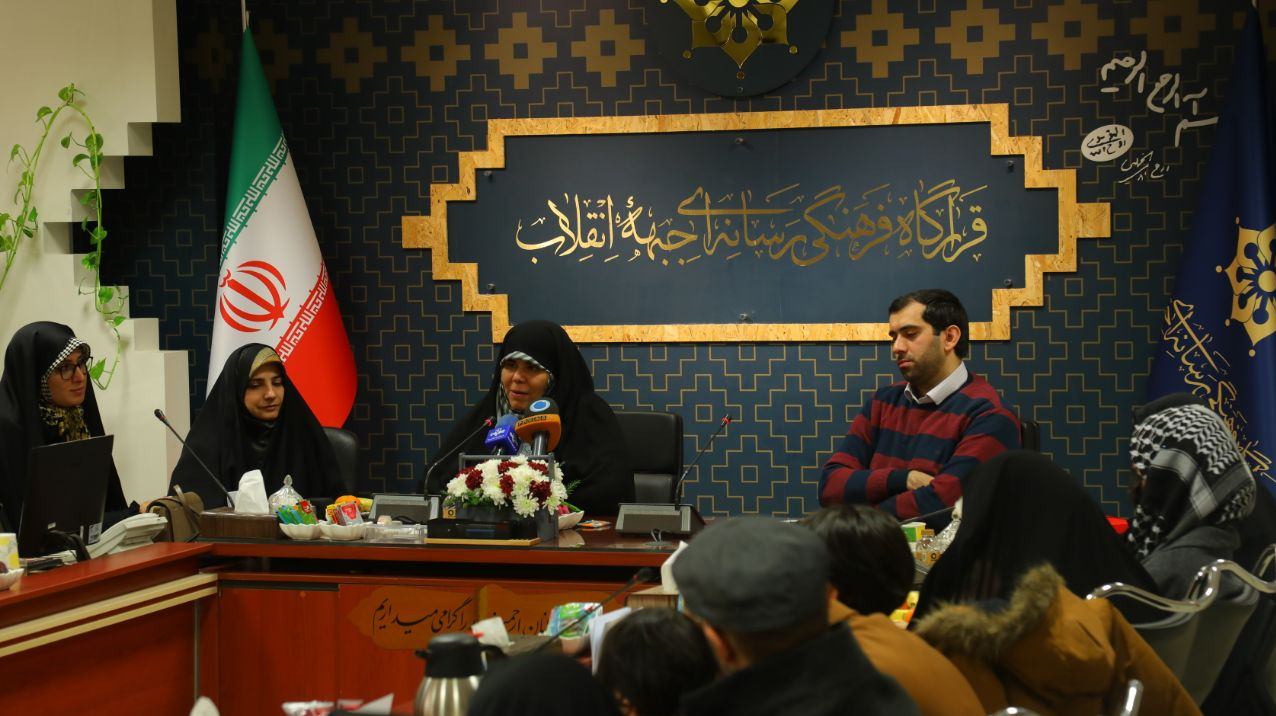The documentary “We Don’t Get Beaten” was unveiled and screened/a critique on domestic violence and women’s rights laws in America

According to the news reporter of Fars News Agency, the unveiling and screening of the documentary “We Don’t Get Beaten” criticizing the laws of women’s rights in America and domestic violence in this country was held in the presence of a group of media officials and activists.
This meeting was held in the presence of Qasimpour, the head of the women and family faction of the parliament, Elahian, the head of the human rights committee of the parliament, production agents and a group of media activists in the Shahada Media building.
The documentary “We Don’t Beat” examines the laws of the United States of America in the field of women and domestic murders in this country. The beating of women and men’s violence against them in the United States is more caused by the type of laws of the United States and the implicit association with this behavior than by the temperament and brutal behavior of American men.
Fatemeh Gudarzi, the producer of this documentary, says: Every year, about 500,000 people in America are victims of sexual violence, and 90% of these people are adult women! According to statistics, one woman out of every three women in the United States has experienced violence from her husband or partner. About 20,000 calls are made to the Domestic Violence Helpline every day, and on the other end of the line are people who have been beaten or threatened with death by their spouses or partners.
Referring to the extensive research of the documentary research team and the obtained research sheets, he states: According to the statistics of the “National Responsibility Against Family Violence” office in the United States, a woman is beaten every nine seconds. In reviewing the interviews of American officials, we found some stunning reports, for example, Nadine M. Newfoil, Director of the Department of Violence Against Women in the US Department of Justice, says: “According to our findings in the United States, every day three women In this country, they are killed by their spouses or ex-partners, and this statistic is very serious for us.”
Women’s protests in America against men’s violence, instead of turning into the path of women’s reform and dignity, turned into the emergence of feminist and sometimes anti-woman movements with women’s slogans.
Ehsan Shadmani, the director of our documentary “We Don’t Get Beaten Up” said in a conversation with Fars on the sidelines of this meeting: The name of the documentary was chosen based on one of the slogans of American women in the seventies with the title “We Don’t Get Beaten Up”. This documentary is the result of an exploratory interview with a number of Iranian students living in America who have spent more than a decade of their lives in this country.
He added: The research sheets of this documentary and the sources mentioned in this documentary are taken from international sources and domestic statistics of the United States, including the Office of National Responsibility against Domestic Violence and the senators of the US Congress.
Shadmani said about the archive of video sources of this documentary: The video sources of this documentary include images from the archives of prominent news agencies as well as the works of international documentaries focused on violence against women in America. This documentary has been produced from more than 5000 minutes of documentaries, news reports, interviews and video documents in archival format.

In a part of the documentary “We Don’t Get Beaten”, Hassan Tavakoli, the narrator of the text of this work, points out a significant point:
“Although protests against domestic violence became widespread in the second half of the 1970s, wife beating and the justification of a man for beating his wife have roots in the distant past, almost since the first American immigrants entered this land.
When the first immigrants of the American land arrived in this region, they started to write legal laws for their newly founded America by forming a government. The first settlers of America took their law from the law of “Common Law” derived from the traditional laws of the British judicial system. Common law originated in England in the Middle Ages and was applied in British colonies across the continents. According to this law, a man had the right to punish his wife if necessary.
In 1982, an important event happened that marked the beginning of a review of the issue of domestic violence against women.
Tracy Truman! Housewife in the city of Torrington! First, in October 1982, Charles, Truman’s wife, had a fight with him and threw him out of the house. Tracy went to the police department, but the police did not handle his complaint! Because there was no law to support him!
A month later, it happened again! This time, Charles, Tracy’s husband, broke the car window on her while she was sitting in the car, Tracy’s body was covered with broken glass. This time, because the crime happened outside the house, the police came in, the court ruled that Charles should not visit Tracy for two years. However, during this period of two years, Charles repeatedly violated the court’s decision, and every time Tracy’s complaint about the violation of the court order by his wife did not reach anywhere! He was even threatened with death by Charles once, but the police still did not support him!
A few months later, when Tracy was at home with her son, her husband, Charles, entered their residence, Tracy called the police, at this time, Charles stabbed Tracy in the neck, throat, and chest with a knife! At this moment, a police officer arrives, but Charles, without fear, gave another strong blow to the head of Terasi, who was now lying on the ground in his own blood, but the police did not show any reaction. While Charles was going to attack Tracy sleeping on the stretcher again, this time the police stopped watching and chose to arrest Charles! After three stabs and hitting Tracy’s head several times!
Tracy Thurman spent eight months in the hospital. Some of his limbs were temporarily paralyzed and others were permanently paralyzed! This time, instead of complaining to his wife, Tracy complained to the police department for not supporting and defending him! »
This documentary was produced with the cooperation of the Muslim Women’s Thought Forum and the project manager of Miqat Media Production Group, commissioned by the international Press TV channel, produced by Fatemeh Guderzi and directed by Ehsan Shadmani, in two versions, English and Persian, for 28 minutes.
end of message/
You can edit this article
Suggest this article for the first page

